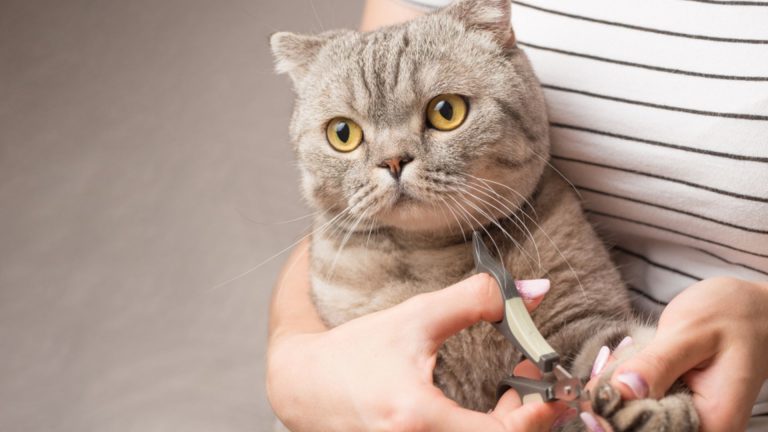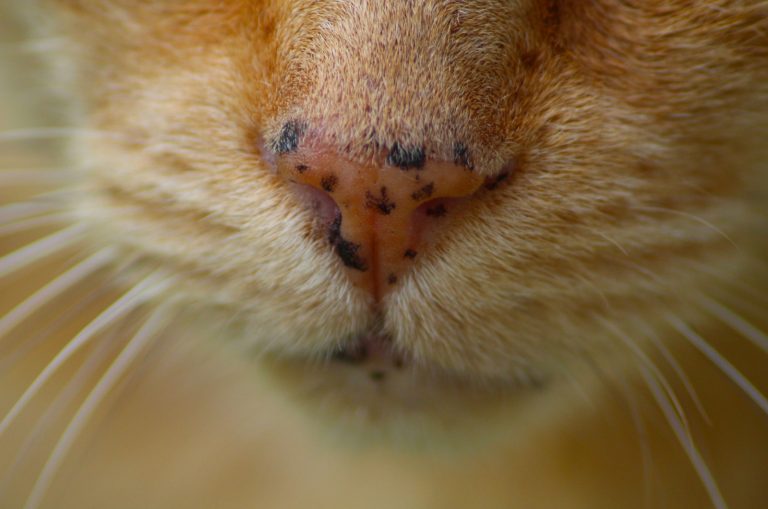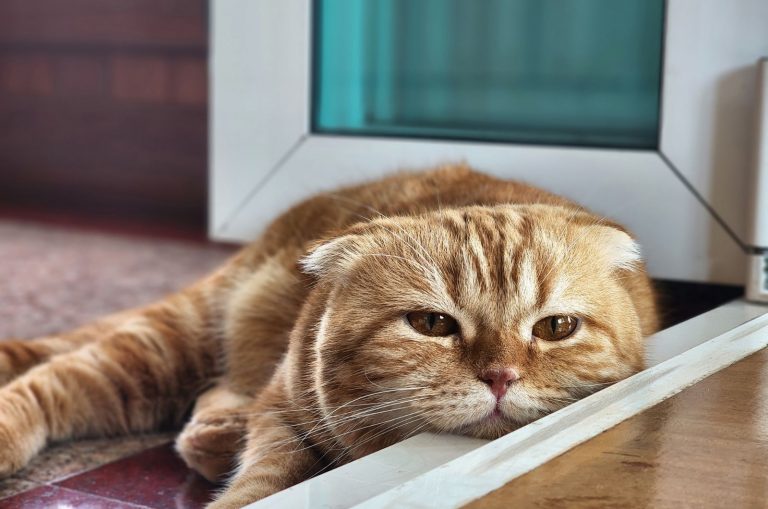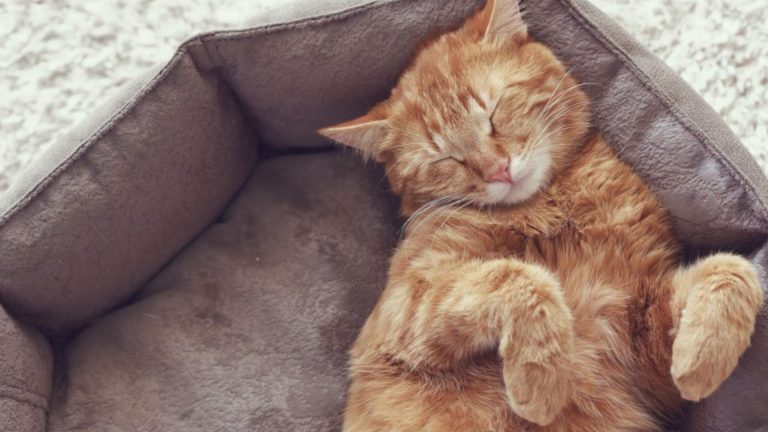Single Kitten Syndrome – Why Two Kittens Are Better Than One
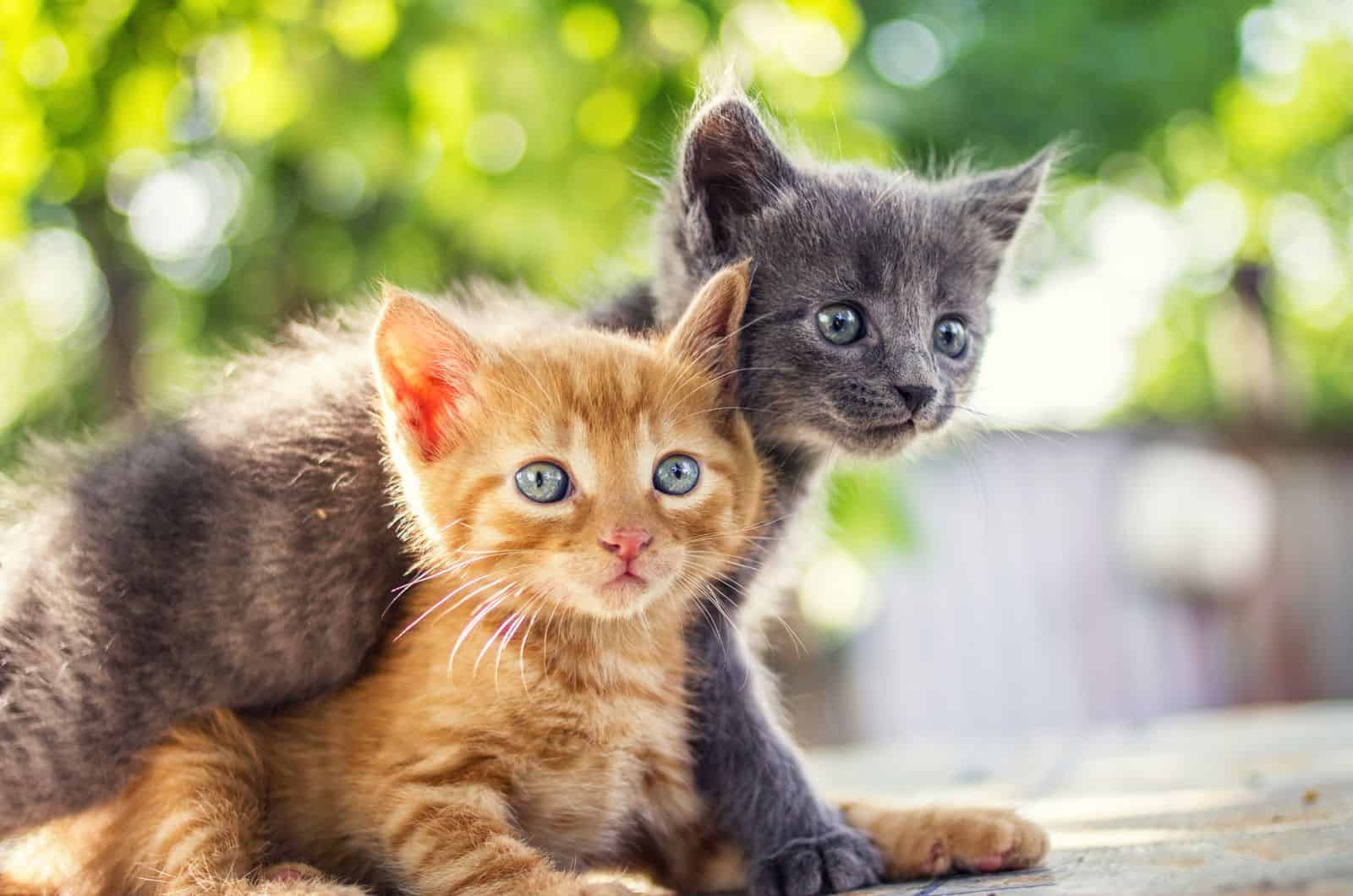
If you’re in the process of getting a new kitten, you might have come across animal shelters or cat rescue centers that do not allow single-kitten adoption. Why is that the case?
Adopting a single kitten into a home with no other cats or kittens can result in the kitten not getting enough of the socialization it needs to be a well-adjusted, content pet.
This can result in unwanted behavior such as the kitten playing too roughly as an adult, biting anyone in sight, scratching the furniture, not urinating in the litter box, etc.
This collection of symptoms is called single kitten syndrome. Let’s start by saying that this is not a true medical syndrome!
However, it is a phenomenon that many owners are aware of and a genuine reason for many animal shelters and cat rescue centers having an “adopt-in-pairs” policy.
If you want to learn more about single kitten syndrome,the cat behaviors associated with it, what to do about it and how to prevent it, I suggest you read on!
An Introduction To Single Kitten Syndrome
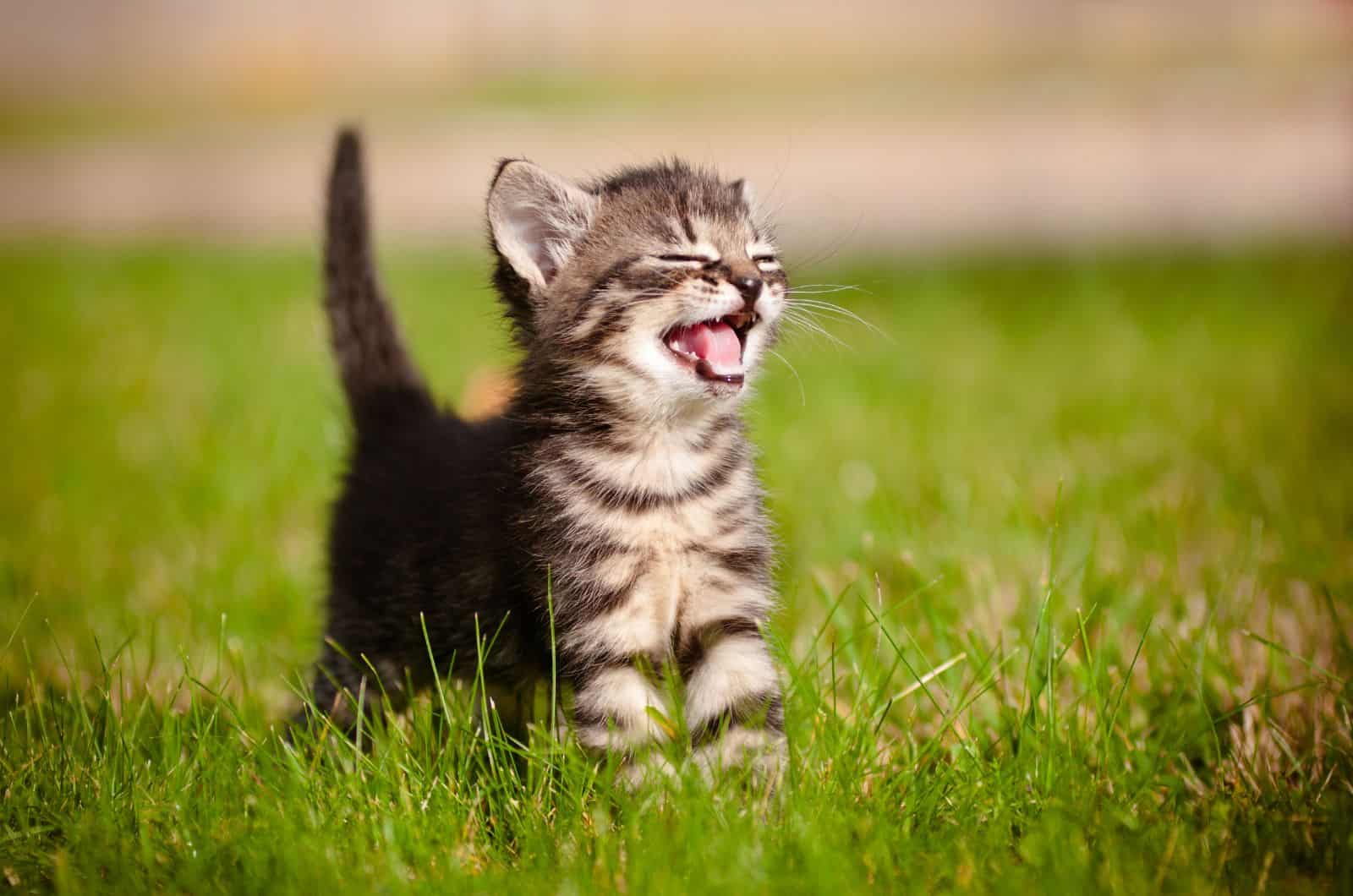
If you’re eager to become a cat-parent and it’s your first time adopting a kitten, it might seem to make sense to get just one kitten, and adopt more later if you feel able to do so. However, a single-cat household is not the perfect environment for a growing kitten!
Kittens that grow up in a one-cat household are prone to displaying various problematic behaviors, which are thought to be the result of the kitten growing up without a feline companion.
The collection of problematic behaviors is called single kitten syndrome, but it is not officially recognized as a medical syndrome in the scientific or medical community.
Due to single kitten syndrome, many young cats are returned to animal shelters and cat rescue centers. This is simply because their owners are not able to handle their troublesome behaviors.
That’s why it’s important to understand this potential issue, especially if you’re thinking about becoming a first-time cat-parent.
What Are The Characteristics Of Single Kitten Syndrome?

Behavioral issues associated with cats that were raised as only cats of the household may include:
• Biting people (small nips may turn into bites)
• Not using the litter box properly
• Scratching the furniture
• Pestering other pets of the household
• Being picky eaters
• Constantly craving attention
• Being dependent on human presence
• Having separation anxiety
• Meowing all the time
• Having a lot of energy
Cat behaviorists believe that these problematic behaviors can be attributed to the lonely kitten needing attention and simply being bored a lot of the time.
Another reason for this behavior could be that the cat has simply never learned how to “act nicely” due to not having another kitten or a cat to learn positive behavior from.
Why Is It Important For A Kitten To Have A Fellow Kitten Companion?
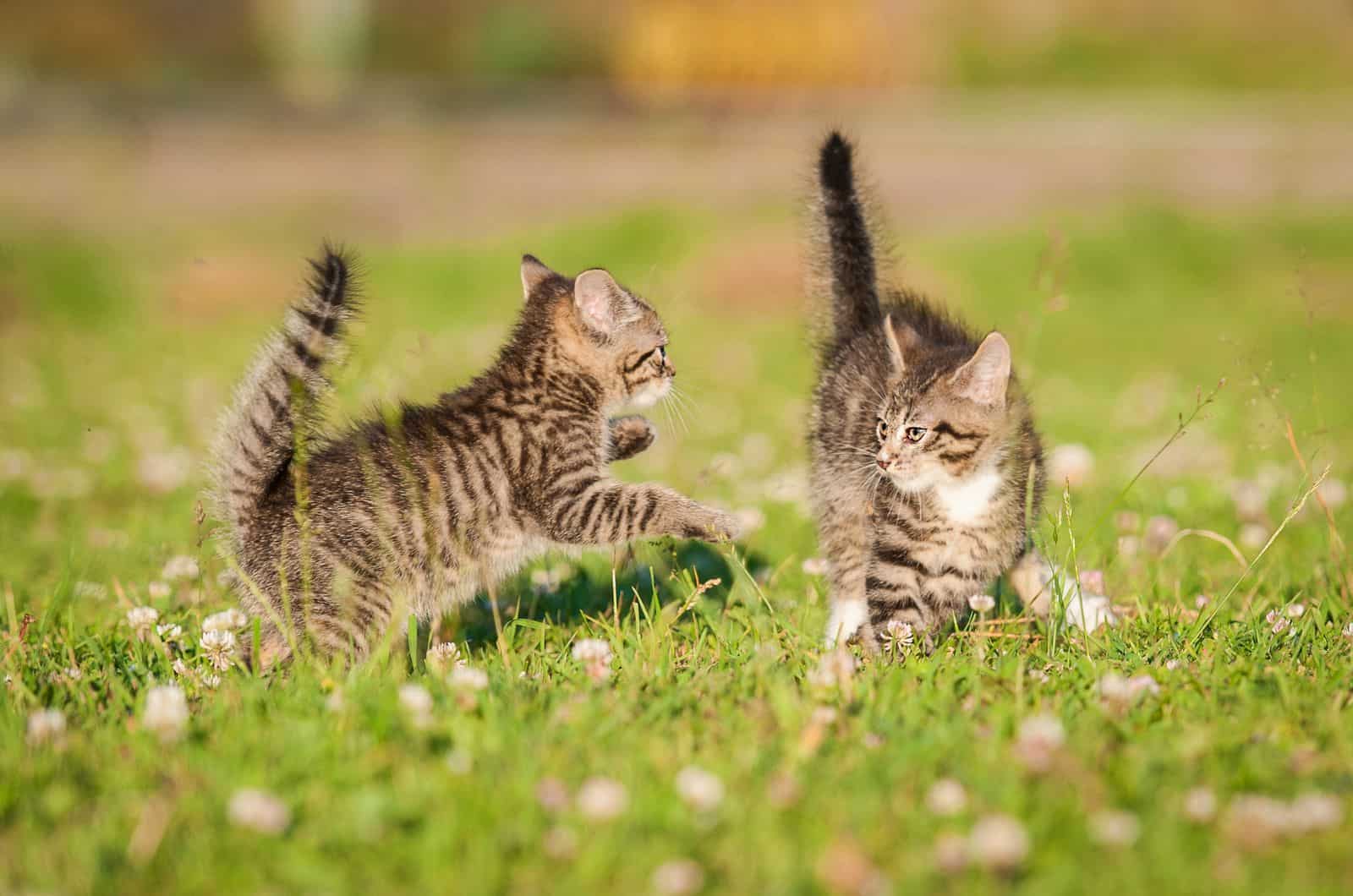
Kittens need to learn acceptable behavior from one another in order to become well-socialized cats.
Between the ages of 2 and 7 weeks of age, kittens enter their most crucial socializing phase. During this time, kittens learn how to be cats…. but what does this mean?
In the socialization phase, kittens learn:
• How to properly interact with one another during playtime
• How much biting is too much biting
• How much clawing is too much clawing
• How to recognize another kitten’s intentions (to play, to cuddle, to fight, etc.)
• How to cuddle and snuggle with one another
• How to self-soothe
• How to inhibit their predatory instincts
• How to establish proper litter box habits
These behaviors must be learned in order for kittens to grow up into young cats which will not cause trouble to the animals, people, and objects around them.
Single kittens, however, are deprived of these crucial lessons and they may subsequently find it challenging to get along with other cats since they don’t share the same “cat language” and cannot communicate or understand one another’s intentions.
If these behaviors are not learned (essentially if how to be a nice cat is not learned), the kitten might display troublesome and destructive behaviors later on, which is indicative of single kitten syndrome.
Check out: New Kitten Checklist – 2023 Guide On What To Do & What To Buy
Will All Single Kittens Develop These Troublesome Behaviors?
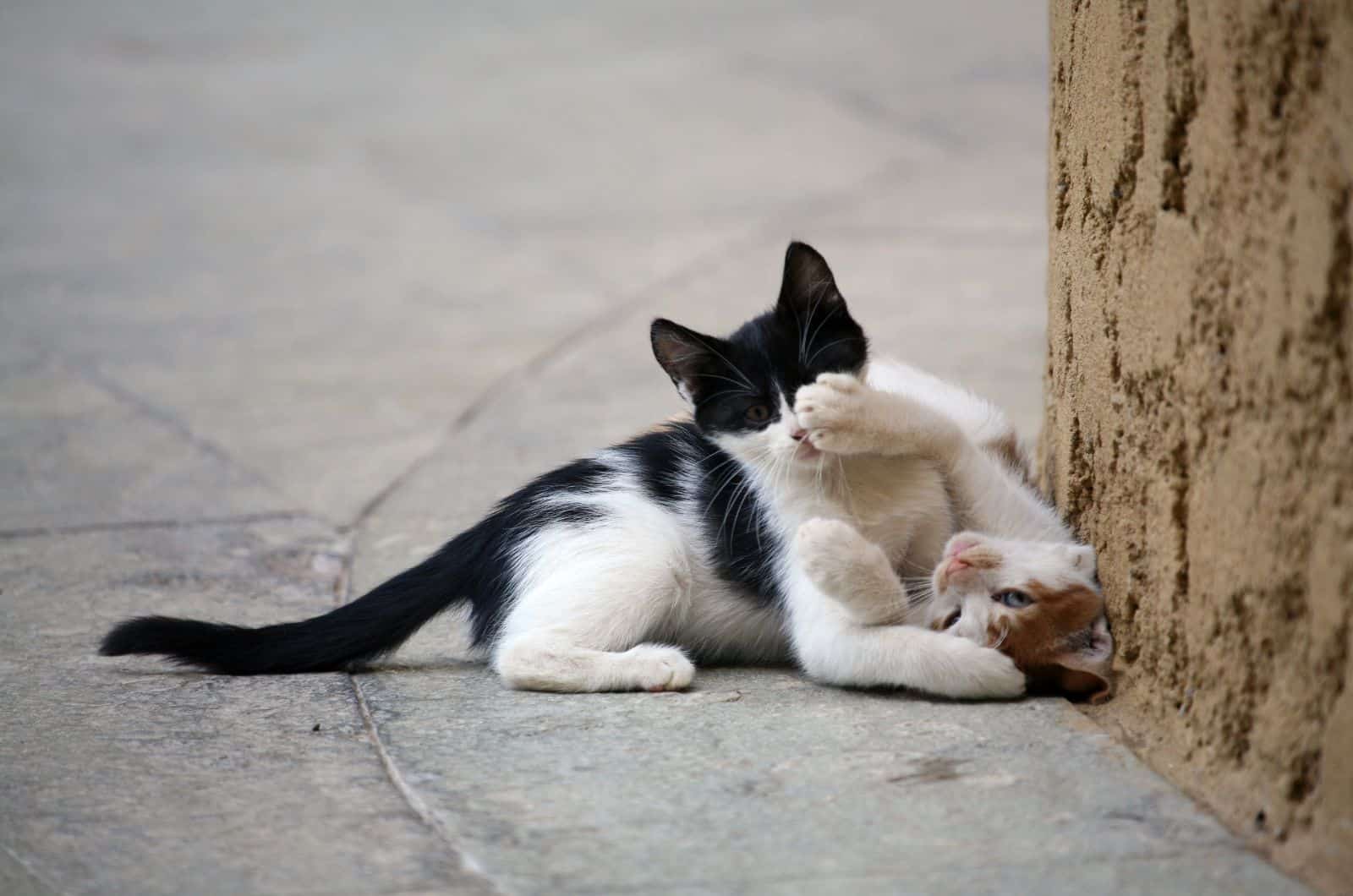
Let me just state clearly that not all single kittens will display behaviors characteristic of single kitten syndrome! It is not a rule that every kitten who grows up in a single-cat home will have behavioral issues!
Many kittens grow up perfectly fine even without another feline companion. It very much depends on the personality of the kitten, as well as the attention and discipline they receive from their owner.
On the other hand, some kittens that are raised with a littermate can have behavioral issues similar to single kitten syndrome.
What I am trying to say is that you don’t have to adopt two kittens if you’re not ready for two. And you don’t have to give up the idea of adopting a kitten just because of what you know about single kitten syndrome!
With a few tips and tricks, which I’ll explain below, you can avoid these troublesome behaviors.
How Can Single Kitten Syndrome Be Prevented?
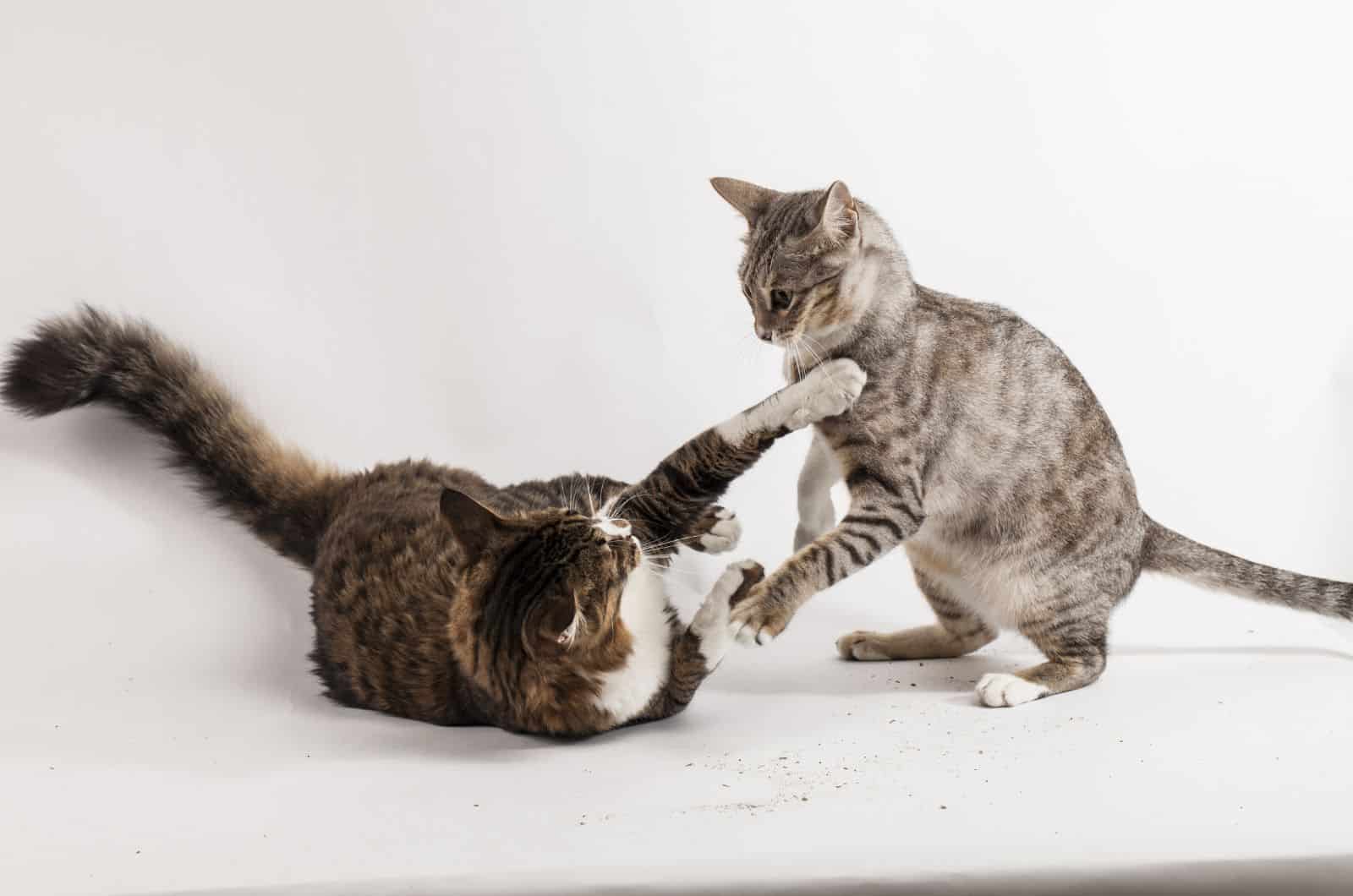
If you’re keen on adopting just one kitten but you are a bit worried about them developing behavioral problems, let’s go over some things you can do to prevent that from happening.
1. Encourage Nice Play Behavior (Discipline Your Kitten)
If you know anything about kittens, you will be aware of their playful nature. They often bite and scrape each other when wrestling and you will hear them yowling when it hurts.
When two kittens are together, they are discovering that making friends through physical play is not the greatest strategy. In the absence of a companion, kittens will try the rough play with you!
The kitten will scratch your ankles and nip your fingers – a bit too much sometimes. When that happens, you need to let them know that it’s not okay.
Use your tone of voice to let your new cat know that that behavior is undesirable.
On the other hand, when your cat is behaving nicely, use positive encouragement by giving them a treat!
2. Provide Lots Of Playtime
The thing kittens want most in the world (even more than food!) is playtime! Not only do they want to play, but you might be surprised to learn that they need to play.
Kittens have a lot of energy and they need an outlet for it. If the kitten has a playmate, they can keep each other entertained and would tire each other out after playing around all day.
If your kitten doesn’t have a feline playmate, then you need to be their playmate! Make sure to spend some time playing with your kitten daily. That can prevent your kitten spending that extra energy on scratching you and the furniture…
3. Invest In Cat Toys
A great way to tire out your kitten is, of course, with cat toys. Every experienced cat owner knows this trick – get your kitty a stash of interesting toys, and they will definitely use them!
This is especially important if your cat is an indoor cat. Indoor cats don’t run around as much as outdoors cats, so any type of energetic activity is welcomed.
Invest in a cat tree, scratching posts, puzzle toys, catnip toys, wands, and teasers. I suggest trying out some homemade toys as well, such as cardboard boxes set up as tunnels and similar creations.
4. The Obvious Answer – Adopt A Second Kitten
The most obvious resolution is to adopt a second kitten or a younger cat. It’s important that the two felines are close in age so that their needs and energy levels are roughly the same.
Older cats might not be able to keep up with a younger cat playing around all the time. Although, having a new kitten around can provide valuable enrichment in the older cat’s life!
You might be surprised to learn that caring for two kittens is not that much more work than caring for one, which I will talk about a bit further in the article.
Suggested: Who Is More Prone To Littermate Syndrome: Cats Or Dogs
How Do Shelters Prevent Single Kitten Syndrome?
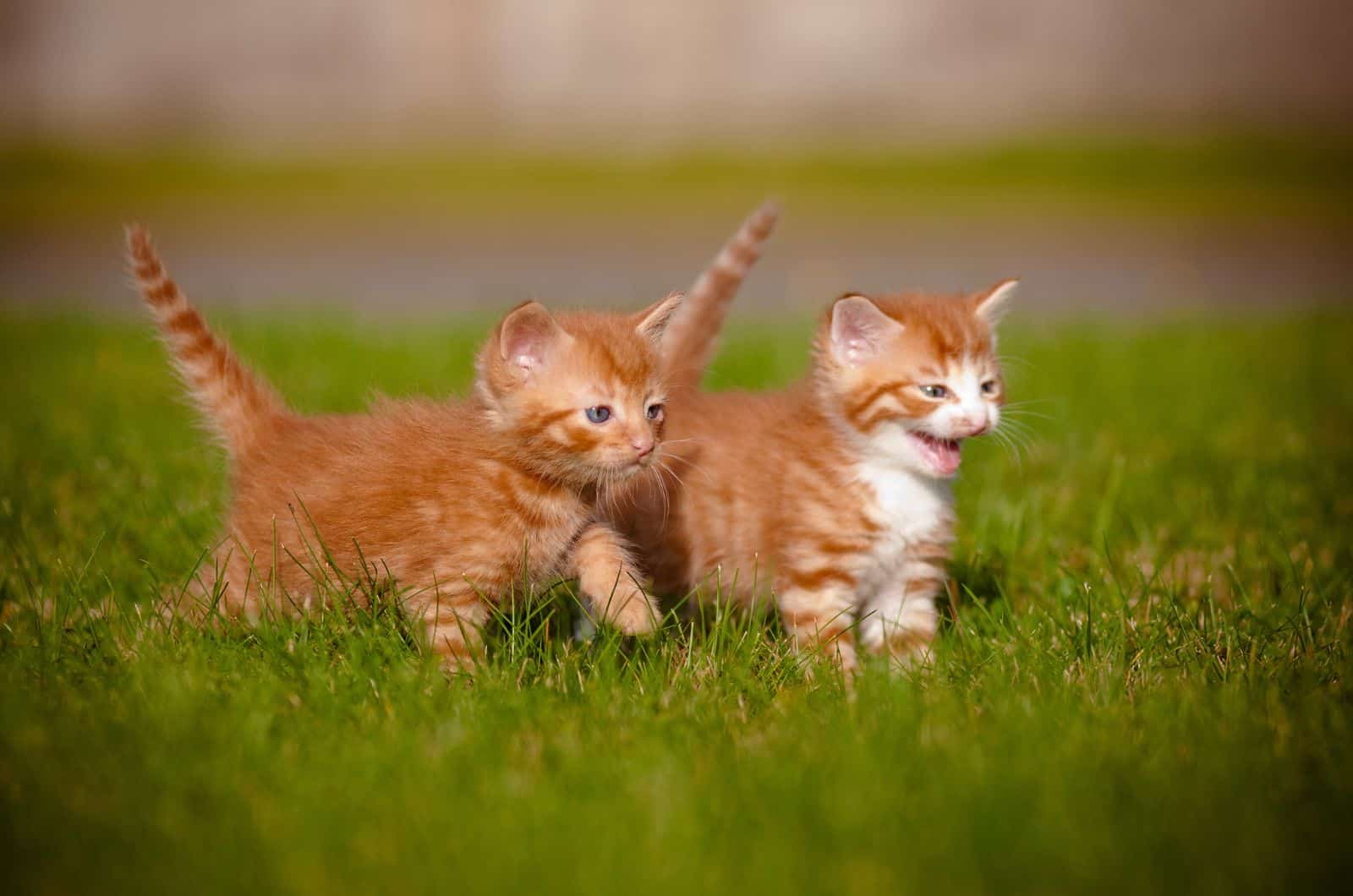
Recently, many shelters and cat rescue centers have introduced the “adopt in pairs” policy.
This policy involves not letting kittens under 6 months of age be adopted alone into a household where they would be the only cats.
This policy is usually a result of kittens (or young adult cats) being returned to rescue centers not long after being adopted.
This is because a number of kittens develop single kitten syndrome. Their behaviors are often very problematic and destructive, to the point where their new owners cannot handle them, so they end up being returned to the place where they were adopted from.
What Are The Benefits Of Adopting Two Kittens Instead Of One?
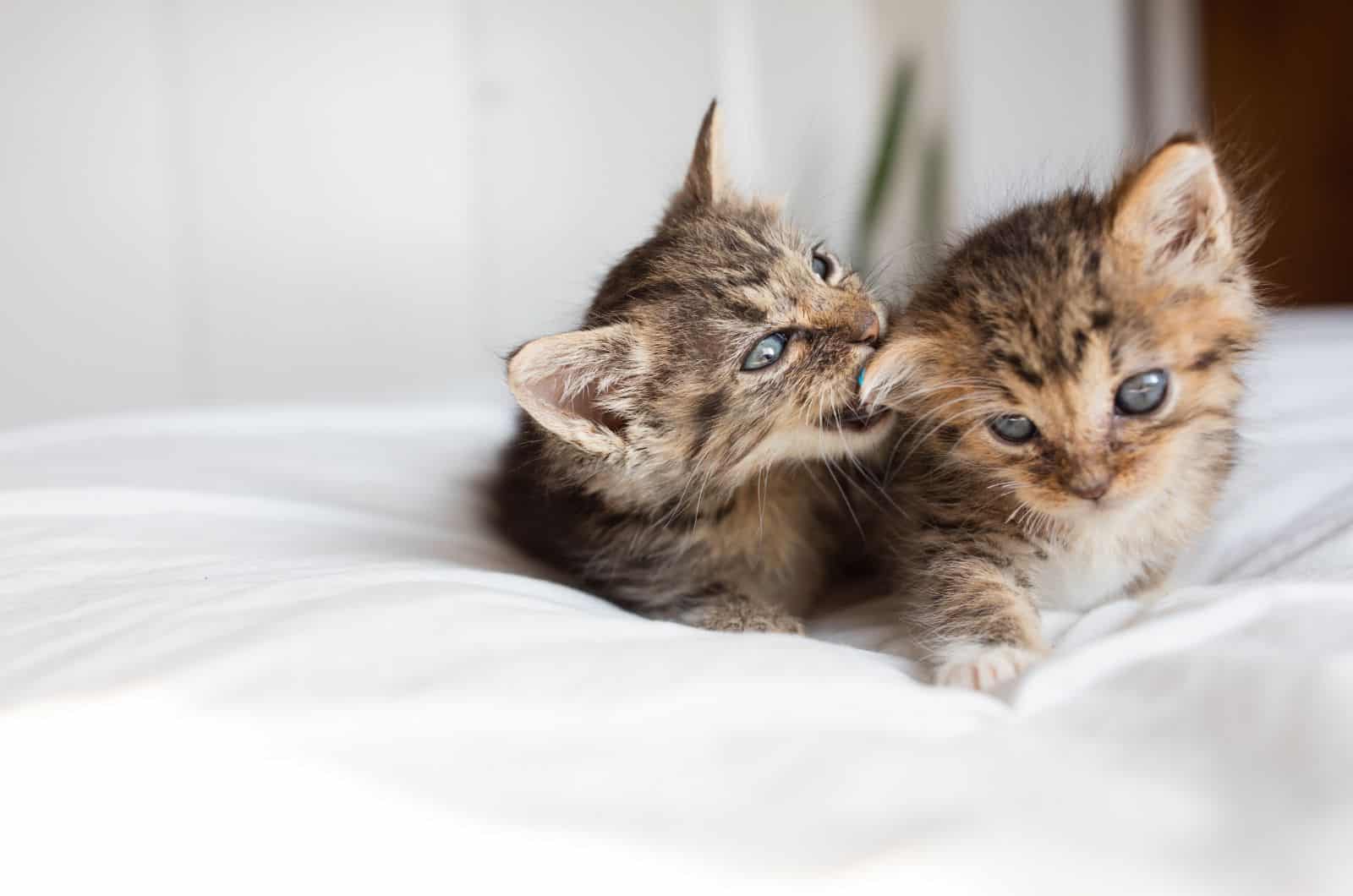
If you’re debating whether to adopt one or two young kittens, it might be good to examine the benefits of adopting two kittens before you decide.
The benefits are:
🐾 They will keep each other occupied, reducing the risk of separation anxiety
🐾 They provide each other with physical and mental stimulation
🐾 They will always have fun together
🐾 They will not need constant attention from the owner
🐾 They are less likely to engage in destructive behavior
🐾 They are easier to train to use a litter box when they see each other doing it
🐾 Transition to the new home is easier for both of them if they have each other
🐾 They are less likely to develop single kitten syndrome
🐾 Caring for two kittens is not much harder than caring for one kitten
🐾 Caring for two kittens is not much more expensive than caring for one kitten
In Conclusion
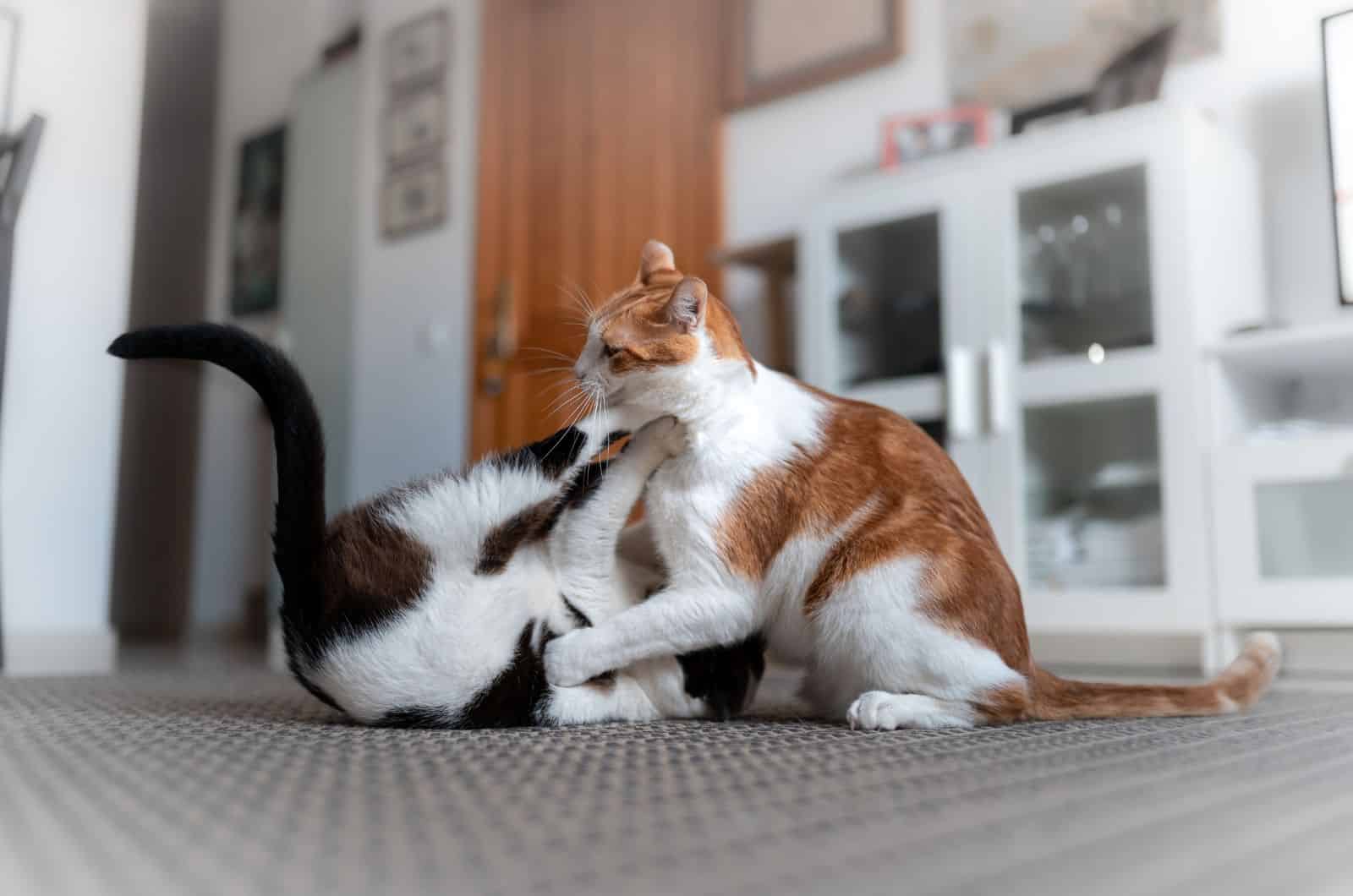
If you want to give your kitten a forever-playmate, I suggest adopting a pair of kittens. They will keep each other entertained and away from bothering you or your family members too much, and prevent destructive behavior!
Having two kittens also prevents a single kitten from developing the problematic behavior associated with single kitten syndrome. It will also mean more fun in your house! Who doesn’t want double snuggles?
Remember – not all single kittens develop this ‘syndrome’, so don’t let this concern stop you from adopting a kitten all together!
Now you know everything there is to know about single kitten syndrome (or single cat syndrome).I hope you’ve learned something new and that I haven’t discouraged you from adopting a new kitten! I’m sure you will manage it perfectly and your kitten will grow up to be a well-behaved young cat!
Like this post? Share or pin it for later!


